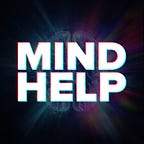Schema therapy, developed in 1990 by psychologist Jeff Young, is an integrative psychotherapy that blends principles from cognitive-behavioral therapy, psychoanalytic object relations theory, attachment theory, and gestalt therapy. Aimed initially at patients with persistent mental health issues stemming from underlying personality concerns, schema therapy explores core mental schemas to address unmet emotional needs.
The therapy, applicable to conditions like chronic depression and relationship issues, delves into coping styles developed in response to unmet emotional needs, neglect, abuse, or trauma. These coping styles include surrendering, avoiding confrontation, or overcompensating.
Schema modes, representing momentary emotional, cognitive, and behavioral states, comprise categories like child modes (vulnerable, angry, impulsive, happy), maladaptive parent modes (punitive, demanding), and healthy adult mode.
The primary goals of schema therapy include identifying and healing schemas, addressing coping styles, altering maladaptive thought and behavior patterns, achieving emotional goals in healthy ways, and replacing unhealthy coping modes.
Techniques employed in schema therapy range from limited reparenting and empathic confrontation to guided imagery, behavioral techniques, and cognitive interventions. The therapy is versatile, beneficial for individual and group settings, and can be tailored to individual needs.
Despite its advantages in addressing unresolved childhood conflicts and integrating various therapeutic approaches, schema therapy has limitations. Research on its clinical effectiveness is limited, it may not be accessible to everyone due to cost and time commitments, and research opportunities to tap into its full potential remain untapped.
Patients seeking schema therapy should find a certified therapist with relevant licensing, considering the therapy’s cost, time commitment, and individualization. Ongoing research indicates significant improvement in patients undergoing schema therapy, especially for conditions like borderline personality disorder.
In summary, schema therapy stands as an evidence-based, integrative approach with potential benefits for various mental health concerns, emphasizing the need for further research to unlock its full clinical potential.
